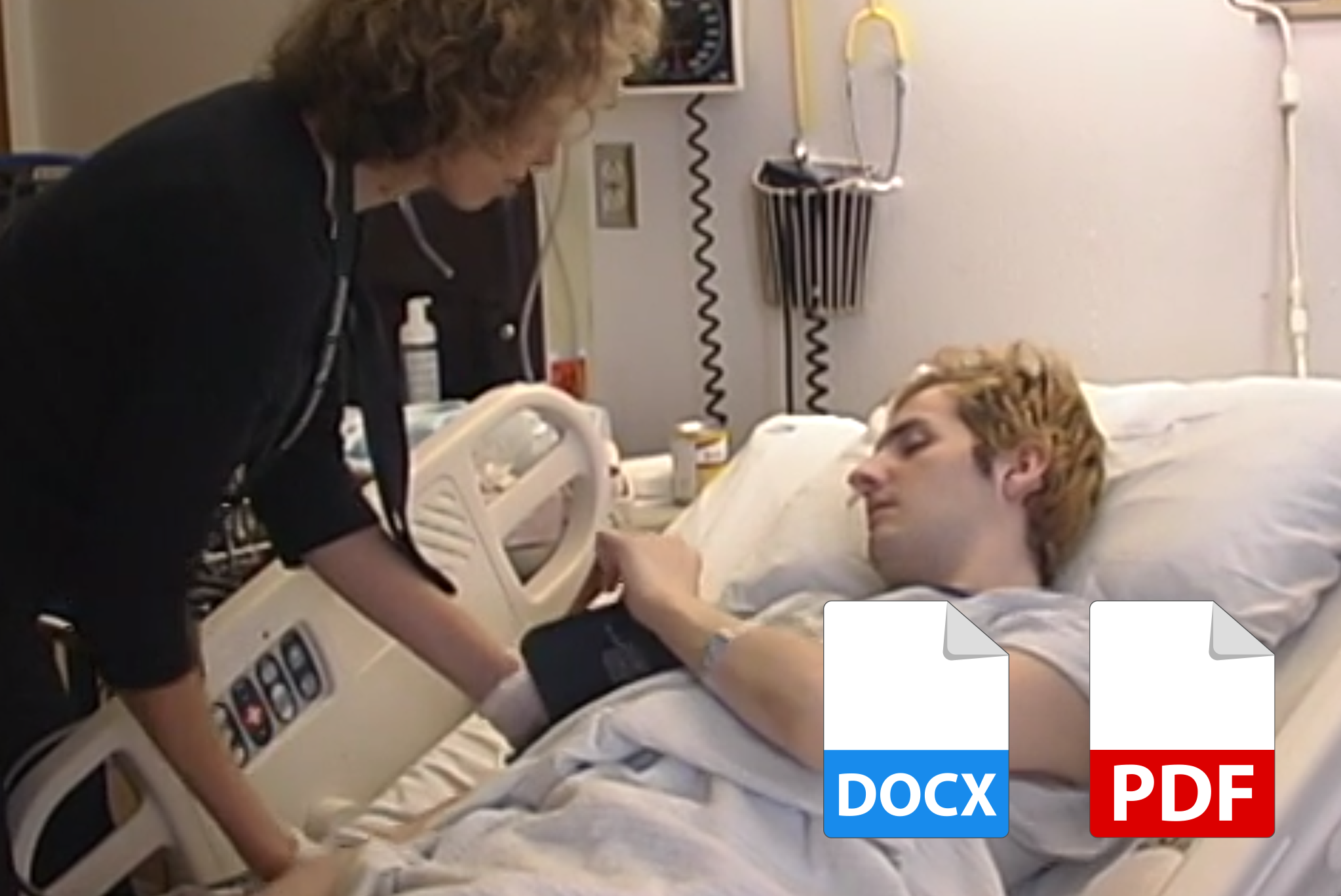How to Use ICE Case Studies
Cases have been carefully selected to allow faculty to bridge the gap between the didactic classroom and clinical experience for their students. Each case includes PDFs formatted to allow students to complete and return to their course instructor. Also included are examples for faculty to reference when choosing learning activities to assign to students.
The ICF Model: A Case Study of Ben
Ben’s videos include great therapist interaction and modeling of therapeutic alliance. He shows some frustration at times which is important for students to problem-solve. Ben’s medical history is complicated and so an excellent case to introduce or reinforce systems review principles. He has many personal factors and environmental factors that students can connect to parts of the ICF model template. Ben’s young age and prior level of function are salient to the students and grab their attention.
Comprehensive Level 1 Fieldwork Alternative in Clinical Observation
Equivalent to 20 hours of clinical observation, this in-depth Level I Fieldwork Alternative was designed to be implemented over a 4-week span.
Week 1: Interviews and Assessment
Week 2: ADLs and IADLs
Week 3 Upper Extremity Preparation
Week 4: Interprofessional Interaction in the ICU
Included are ICE Videos with Comprehensive Assignments, Activity Time Log, Observation Forms, and Assignment Checklist.
Pair Videos to Learning Objectives
First determine what learners should gain by viewing the case, then choose the appropriate videos to illustrate that objective. These can be simple to complex, and may depend on the course in which the videos are used.
Case Study: Ben
Ben’s videos provide a case with rich learning opportunities, due to the acute care environment, complexity of his condition, number of video available, and variety of therapists providing his care. There are many learning activities that can be used to achieve diverse learning objectives using Ben’s case.
Stroke, Acute Care
This assignment on a stroke patient in acute care is intended to provide one day of alternative Level 1 Fieldwork.
Stroke, Dressing in Acute Care
This assignment on dressing in acute care is intended to provide one day of alternative Level 1 Fieldwork.
Dealing with Frustration
How to respond to a client’s emotional instability, including frustration and lack of participation.
This activity supports the requirements for:
ACOTE standard B.3.2
CAPTE standards 7D8 and 7D30
Sample 3-day Level I Clinical Experience
Watch the webinar Create a Virtual Patient Experience Using the ICE Video Library to learn more from Mary Hudson-McKinney on this virtual clinical experience and how her students responded.















